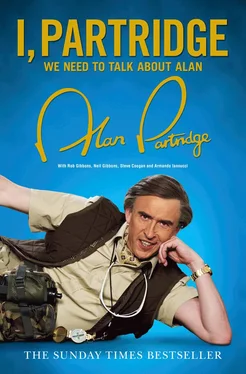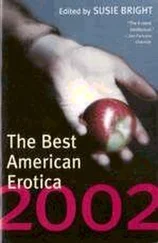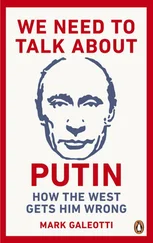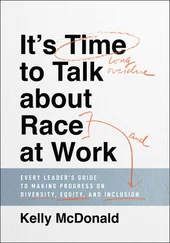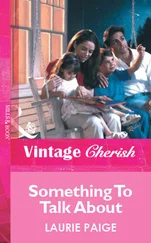You’ll notice from this that I had a much brasher broadcasting style in my early days, my speech peppered with laughs and shouts and whoops. Soon after Good Morning Vietnam came out, I’d even begin shows with the holler: ‘Gooood morning St Luuuuuke’s!!!!!!’ However, I was upbraided for this and told it called to mind a war zone littered with the injured and diseased – which was precisely why I’d thought it was so appropriate.
As DJing gigs go, it was far harder than people realise. Yes, you have a captive audience, but you also have a listenership that is almost exclusively poorly. And that makes song selection a delicate business. One wrong step and you could instantly offend a fairly meaty percentage of patients. Just take the number one singles from my first year in the job, 1975. Almost all of them were capable of upsetting someone. Art Garfunkel’s ‘I Only Have Eyes for You’ (the recently blinded); David Essex’s ‘Hold Me Close’ (burns victims); The Stylistics’ ‘Can’t Give You Anything’ (the terminally ill); Tammy Wynette’s ‘Stand By Your Man’ (paralysed women, paralysed homosexual men).
In my time at the hospital, I was broadcasting live during the deaths of some 800 patients. It’s a record that stands to this day. Industry awards and repeated praise from TV Quick magazine are all very well, but it gives me immense pride to think that the final voice those 800+ people heard may have been mine, as I read the traffic and travel or introduced a clip from my favourite Goon Show LP.
I spent 94 wonderful months behind the mic at St Luke’s. But by autumn 1983, much like most of the patients on the Marie Curie wing, my days were numbered. I guess I always knew that as word of my competence leaked out across Anglia, my head might be hunted. And so it was that in September I answered the phone to local media mogul Rich Shayers.
‘Alan, you’ve done your time on hospital radio. It’s time to spread your wings.’
‘What, like a bird?’ I asked, keen to know more.
‘I’m starting a new station and I want you on board.’
‘Will I get loads of salary?’ I blurted. I was young and unsure how to phrase questions relating to remuneration.
‘Just swing by my office tomorrow and we can hammer all that out.’
‘Great,’ I replied. ‘I’ll bring the hammers!’ And with that, my career changed forever.
But there was to be a moving post-script to this chapter in my life. And I’ll tell you about it now. At my leaving do, with the party in full swing, I stopped the music, climbed atop a chair and gave the hospital staff an emotional, heartfelt guarantee. I pledged, no matter how famous I became, that while there was still air in my lungs, I would come back and do my show for a minimum of one week every year.
I may not have been able to donate money, but in some ways I was able to donate something far more powerful. I was able to donate chat (to a maximum value of one week each year). And with that, I picked up my coat and left the building, the warm applause of my colleagues still ringing in my ears like a big church bell.
Sadly, circumstance has meant that I’ve not been able to get back to the hospital in the intervening 31 years. In the main that’s down to me – work commitments have made it simply unfeasible. But for the record I’d like to point out that the hospital is not entirely blameless itself. In 2001 it moved to a new site around the corner from the University of East Anglia. The studios from where I used to broadcast my show were reduced to rubble. And I think most reasonable people would agree that by allowing that to happen the NHS Trust effectively voided my promise.
42School trip to Heston Farm, 1964. I maintain it was self-defence.
43Press play on Track 9.
44If he was particularly unlucky it would have been a Bouncing Betty. These horrible little devices are designed to spring three feet into the air before exploding and inflicting the maximum number of casualties on an enemy. I think they’ve won awards.
Chapter 6
Local/Commercial Radio
RICH SHAYERS HAD CONVINCED me to do something more worthwhile than providing a soothing backdrop of music and companionship for those in need 45 – so I’d accepted his offer of a job DJing for a fledgling station. The set-up reminded me very much of the buccaneering can-do spirit of Radio Caroline – maverick disc jockeys flouting regulations to give listeners something new and fresh. My job wasn’t on pirate radio – that would have been a criminal offence. It was the in-store radio station for a branch of record shop Our Price.
It was a pilot scheme way, way, way, way ahead of its time (indeed, it folded within weeks). But the team! It’s my privilege to say that these were some of the most dazzling young broadcasters I’ve ever had the pleasure of working with. They were scientific in their understanding of good radio – they were radiologists.
Check out this roll call.
Paul Stubbs. An aficionado of US shock jocks and personality DJs, he sadly never knew what he had. He left the business shortly after Our Price and now works for Hertz car rental. Still follows the US game and is a fountain of knowledge on call-ins and quiz ideas. Invaluable.
Phil Schofield. Phil was always the baby of the group and had a snotty-nosed quality that we bullied out of him. Now better known as the presenter of TV’s This Morning, Phil was back then a bit of a know-it-all and was brought down a peg or two by off-air pranks such as having his new shoes filled with piss. There was no smoking gun/dripping willy, so Stubbs got away with it. It was a tough time for Phil and he never talks about it. Phil, if you’re reading, why not give me a call?
Jon Boyd. That voice! Warm, reassuring and deliciously transatlantic, Jon later turned his back on radio and has made quite the name for himself as a voiceover artist with, by his own admission, a pretty limited range. His voice can be heard in the lift of an art gallery in Bath. He tells me he takes women there and then mimes the words ‘Doors Closing’ or ‘Third Floor’ over the sound of the recording. Freaks them out. Cracking SOH.
Brian Golding. ‘Bonkers’ Bri combined a wacky sense of humour with a genuine mental illness and went on to co-host Drive Time on Signal Radio before killing himself in 1991.
As a team, I think we all knew then that we had something special, and that sense of worth was a shot in the arm for a young, thrusting Alan Partridge. With that shot – easily as powerful as an intravenous drug like ‘heroin’, ‘smack’ or ‘gear’ – I was driven to go out into the world of broadcasting and succeed. Nothin’ was gonna stop me!
1984–1987. Not much happened here.
It’s 1988 and a young, side-parted young radio reporter is pinning a pretty rude lower-division football manager down on his team’s disgraceful disciplinary record.
‘Six red cards in as many games,’ says the reporter. ‘Why do you continue to tolerate this culture of hooliganism?’
The manager tries to worm his way off the hook by disputing the figures. ‘They’re yellow cards,’ he says, ‘And that’s actually a pretty good behaviour record.’
But the reporter has the figures written down on a notepad and won’t be deterred. In the end, the manager loses his rag – ‘You bloody idiot’ – pulls the top off the microphone and throws it at the reporter, but it doesn’t hurt anyway because it’s made of grey foam. The reporter broadcasts the story that night. It was, everyone agreed, great radio – and although the reporter had to issue a full apology and retraction for the red/yellow card error, it burnished his reputation as one to watch. 46
That reporter was Alan Partridge. The manager? The name escapes me, but it must have been fairly local because I remember being pleased I’d driven there without stopping for a toilet break. I can’t remember what he looked like either or what colour his team played in, just that he had a strong regional accent and used such a hilarious mix of tenses – ‘he gets the ball and he’s gone and kicked it’ – that he sounded like a malfunctioning robot at the end of a space-fi movie.
Читать дальше
